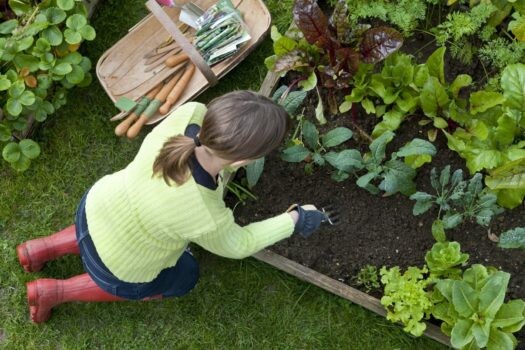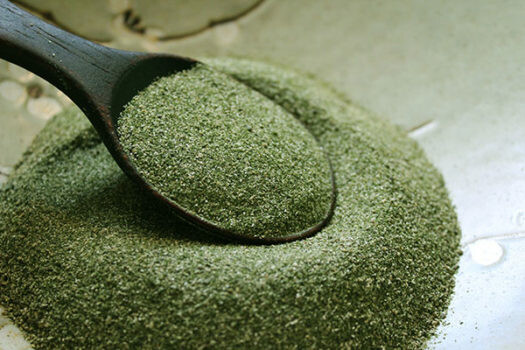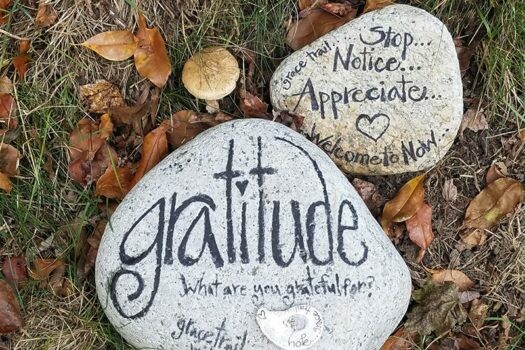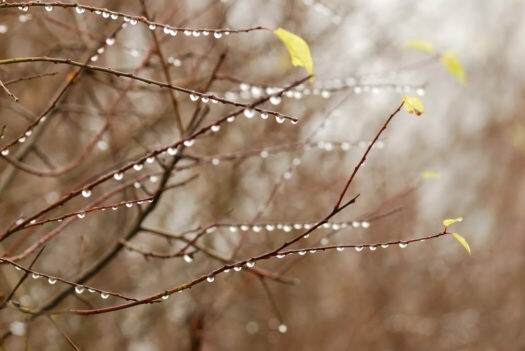
Gardening and using essential oils combines two things that I enjoy. Growing my own garden gives me a sense of accomplishment, and using essential oils to care for the plants makes me happy.
Knowing that I planted, watered and nurtured the plants that produced the vegetables I like most is a very rewarding experience. Besides that, they taste better too! I know exactly where they came from as well as what is (or isn’t) on them. While it is possible to find fresh, local produce in the stores or from CSAs, there is nothing like going out to the garden and choosing what to have with dinner.
Besides knowing that your food is safe to eat, growing and harvesting your own vegetables and herbs also helps our environment. By not using pesticides and herbicides on your plants, you reduce the amount of toxic chemicals in the air and water. Plus, not having to transport them from field to stores saves on fuel consumption and further eliminates toxin sources that pollute the air.
Home gardening also saves you money, and who doesn’t need that these days? It’s estimated that for every $1 you spend on seeds, tools and time, you get back nearly $2 in fresh produce. Save money, help the environment and have fresh, safe food – sounds like a winning combination to me!
Gardening Improves Your Health
Growing a garden offers many emotional, physical, and mental benefits. Spending time in the garden (or in flower beds) can help to relieve stress, increase your overall activity level and provides an opportunity to practice grounding, or “earthing”. When your skin is connected to the earth, free electrons transfer into your body and these are some of the most powerful antioxidants known to man. Experiments have shown that these free electrons cause beneficial changes in heart rate, decrease inflammation, reduce pain, promote better sleep and much more. All of these contribute to your overall health and well-being.
Did you know that people in the most industrialized nations now spend more than 90% of their lifetime indoors? Not getting enough sun can affect your brain function, mood and physical well-being and results in low levels of Vitamin D while getting out in the sun and working in the dirt can improve sleep, deter depression, and promote a better immune system. Researchers at the University of Michigan found that both memory and attention span increased after people spent time in a natural setting; and Dr. Natasha Campbell-McBride lists both fresh air and sunshine among the top 10 influences that boost healthy immunity.
Backyard gardening can inspire you to take an interest in the origins of your food and make better choices about what you put on your plate. When you grow your own food, you savor it more because of the effort it took to get to the table. – Dr. Helen Delichatsios, Internist at Harvard-affiliated Massachusetts General Hospital
Gardening With Essential Oils
Maintaining a weed-free, pest-free garden can be a challenge, especially when you are committed to NOT using herbicides and pesticides loaded with toxic chemicals. With the rise of organic farming and gardening, manure is often used as fertilizer and household products can be used as weed killers. This is where essential oils come in.
A number of essential oils can be used as deter insects and weeds from taking over. Of course, there are no foolproof answers, but everything you do naturally to prevent infestation will make your garden even more bountiful.
Here are just a few of the more common insects that may be found in gardens, flower beds and lawns, along with the essential oils that deter them.
| Insect | Essential Oil |
| Ants | Peppermint, Spearmint, Garlic, Orange |
| Aphids | Peppermint, Spearmint, Cedarwood, Hyssop, Orange |
| Cabbage Caterpillars | Rosemary |
| Chiggers | Lavender, Lemongrass, Sage, Thyme |
| Fleas | Lavender, Lemongrass, Peppermint, Purification, Orange, Rosemary |
| Flies | Basil, Clove, Eucalyptus, Lavender, Peppermint, Rosemary |
| Mosquitoes | Lavender, Lemongrass, Purification, Rosemary |
| Slugs & Snails | Cedarwood, Garlic, Pine, Hyssop, Patchouli |
| Spiders | Peppermint, Lemon, Lime, Orange, Lavender |
| Ticks | Lavender, Lemongrass, Purification, Thyme, Sage, Tea Tree |
However, essential oils aren’t just for keeping unwanted creatures away from your garden. You can also use certain fragrant essential oils to attract pollinators to your garden. The scent of orange blossom is an irresistible attractant for bees, as are the essential oils of small-blossomed flowers like lavender, hyssop, marjoram, helichrysum, basil, sage, and rosemary. You can also use lavender, fennel, helichrysum and sage essential oils to attract more butterflies to your garden.
You can use essential oils to keep 4-legged pests out of the garden and flower beds too. For example, cats dislike the smell of rosemary, so adding a few drops in your mulch or spraying the ground with a solution containing rosemary may help keep them out. Using black pepper essential oil to spray specific areas seems to work well for keeping dogs away, as they don’t care for the strong smell. Mice and other rodents dislike peppermint and Purification®, so a few cotton balls doused with the oil and placed in their burrows might persuade them to relocate.
To make an effective weed killer, mix 5 drops Thieves® essential oil and 1 teaspoon liquid soap such as Dr. Bronner’s in a large spray bottle, then fill the rest of the way with vinegar. Spray unwanted plants with the mixture (preferably on a sunny day) then wait 24 hours. This works amazingly well! The soap causes the oil and vinegar to stick to the plant and basically suffocates it.
In addition to all the ways essential oils can be useful in your garden, they are also extremely beneficial for you. Essential oils are distilled from the aromatic liquids in plants, trees, shrubs and flowers and can provide you with the same benefits they provide for the respective plants.
Essential oils have been proven to enhance mental clarity, improve mood, create a calming environment, and support wellness in all the systems of the body. They are used in massage therapy, aromatherapy, personal care products, household cleaning solutions and nutritional supplements – and now in your garden!
The Methods Of Incorporating Essential Oils
Essential Oil Spray — Make a spray to deter pests or against disease by adding 4-8 drops of essential oil to 1 gallon of water, shake well, then spray onto flowers, fruits, and vegetables.
Cotton Balls — Apply a couple drops of peppermint and/or Purification oil onto cotton balls and place in animal burrows and nests to cause them to relocate. Repeat as needed.
Strips of Fabric — Apply a drop of an essential oil to strips of cloth and hang them from trees. Apply more essential oils to the strips as needed.
String — Soak string in water and essential oils and hang them between rows of vegetables to deter flying insects.
How To Get Started With Gardening
If you have never grown a vegetable garden before, then this is the year you should start. The first thing you need to do is check when the last frost date is in your area. Next, decide if you’re going to start with plants or with seeds. Starting with seeds is the cheapest way to go. The Garden Planting Calendar is a great tool for helping you get your garden started. Just enter your zip code or city and it will display the estimated last frost date, the length of the growing cycle and suggested plants for your garden.
If you don’t have space for a full-fledged vegetable garden in your yard, potted plants and container gardens work just as well. There are many different types and styles of containers suitable for vegetables. Just check on Pinterest, or one of my favorite resources is HGTV.com.
If you’ve thought about planting a garden, or maybe you’ve had one in the past – why not start one this year? This one activity incorporates 6 out of the 12 Facets to A Healthier Life described in my eBook Balanced Healthy Living: eating real food, stress management, activity/movement, fun/pleasure, nature/fresh air and living naturally. To receive a free copy of the book, sign up for my newsletter. For more information on Young Living Essential Oils (the only brand I use and recommend), visit the Essential Oils page.
Disclaimer: The information contained herein is not to be construed as medical advice and is not intended to diagnose, treat, or cure any medical condition. These statements made have not been approved by the FDA, nor should they be taken as a substitute for medical advice from a licensed physician.
Affiliate Links: Some links on my website and emails are affiliate links. Should you click on these links and decide to purchase anything, I will receive a small commission and you will have my sincere thanks for supporting Tina’s Healthy Living.












